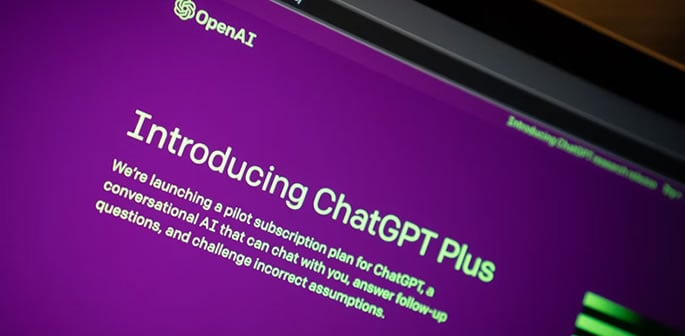“Millions of Brits are already using ChatGPT every day for free."
It is reported that OpenAI CEO Sam Altman met Technology Secretary Peter Kyle to discuss a multibillion-pound deal to provide premium access to ChatGPT across the UK.
According to The Guardian, two sources with direct knowledge of the meeting said the idea was raised as part of broader discussions in San Francisco about collaboration between OpenAI and the UK.
Those close to the talks said Kyle never took the proposal seriously, partly because it could have cost up to £2 billion.
However, the discussions illustrate Kyle’s enthusiasm for the artificial intelligence sector, despite concerns over accuracy, privacy, and copyright implications.
OpenAI offers both free and subscription versions of ChatGPT.
The paid service, ChatGPT Plus, costs $20 (£15.74) a month and offers faster responses and priority access to new features.
Transparency data shows Kyle dined with Altman in March and April.
In July, he signed a non-binding agreement with OpenAI to explore AI use in public services. The deal could give the company access to government data and its software might be deployed in education, defence, security, and the justice system.
Kyle has championed AI in government and used it in his own work.
In March, it emerged that he had asked ChatGPT for advice on issues including why UK businesses were not adopting AI and which podcasts he should appear on.
He previously said: “ChatGPT is fantastically good, and where there are things that you really struggle to understand in depth, ChatGPT can be a very good tutor for it.”
The UK is one of OpenAI’s top five markets for paid ChatGPT subscriptions.
An OpenAI spokesperson said: “Millions of Brits are already using ChatGPT every day for free.
“In July, we signed an MoU [a memorandum of understanding] with the government to explore how we can best support the growth of AI in the UK, for the UK.
“In line with the government’s vision of using this technology to unlock economic opportunity for everyday people, our shared goal is to democratise access to AI.
“The more people who can use it, the more widely its benefits will spread.”
OpenAI has been in talks with multiple governments and has signed a deal with the United Arab Emirates to enable nationwide use of ChatGPT in sectors including transport, healthcare, and education.
The UK government has also sought AI investment from the US, making deals with OpenAI rivals Google and Anthropic earlier in 2025.
Kyle has warned that technological influence, particularly in AI, could determine future global power.
He told the Rest is Politics podcast:
“I want us to be at the very forefront of [AI] because those countries will get to shape how it goes, how it is used and deployed.”
Generative AI tools like ChatGPT can produce text, images, videos, and music using existing books, photos, footage, and songs. This raises questions over copyright and has drawn criticism for producing false information and poor advice.
Ministers have faced opposition from artists such as Elton John and Tom Stoppard over proposed copyright changes that would allow AI companies to train models on copyrighted material unless owners opt out. Some creatives have claimed the Labour government is too close to big tech.
UKAI, representing the UK AI industry, has argued that the government focuses too heavily on large tech firms at the expense of smaller companies.
A government spokesperson said: “We don’t recognise these claims.
“We are working with OpenAI and other leading AI companies to explore investment in UK infrastructure, improve public services and rigorously test the security of new technology before it is made public.”
The science and technology department confirmed no proposal to give UK residents ChatGPT Plus access has been pursued, and no discussions have taken place with other departments.






























































